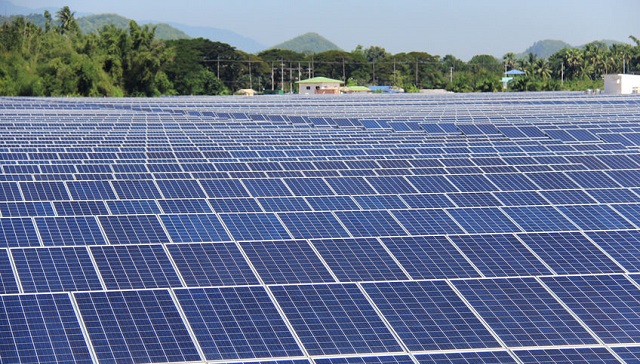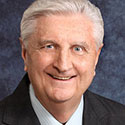ILLINOIS: Another Win For NetZero Reality Coalition as Town Nixes Solar Desert
By Committee For A Constructive Tomorrow

The new NetZero Reality Coalition scored another big win when the town of Pontiac, Illinois said NO to transforming land from natural habitat to a silicone solar desert.
Illinois town nixes solar desert
In a stunning setback for solar, the City of Pontiac, Illinois has scuttled plans to construct a solar energy project that would transform a vacant lot in town into a shiny solar desert.
At an emotional Feb. 13 hearing before the City of Pontiac Planning and Zoning Board, city official denied the application of Bundleflower Solar LLC to rezone the property so that as many as 5,568 photovoltaic solar panels could be installed there. A few days later, Bundleflower Solar withdrew its application altogether, putting an end to a project that had garnered fierce opposition from the city’s residents.
To add insult to injury, the owner of the 49-acre property, where the thousands of solar panels were to be installed, changed his mind and came out in opposition to the project.
The dramatic turnaround shows what can happen when citizens are well informed about how harmful solar (and wind) projects are, and then mobilize to stop deep-pocketed renewable-energy developers from ruining their communities.
CFACT Informs the Citizenry
CFACT was glad to be of assistance in this David v. Goliath confrontation. Two weeks before the decisive hearing, we posted an article about the project, outlining how Pontiacs residents would in no way benefit from have the solar project in their town. The article also appeared in Real Clear Energy, giving it greater coverage. Concerned residents emailed the article to their allies, and passed out hard copies to one and all. CFACT also advised the project’s opponents to pack the hearing, where – armed with the information contained in the article – they made compelling arguments to the zoning board against the project.
Zoning board hearings are usually won by people who show up, and the solar project’s few local supporters were steamrolled by Bundleflower Solar’s well-informed opponents.
Based on information supplied by CFACT, residents pointed out that solar power is intermittent and cannot supply electricity 24/7. They knew that the thousands of solar panels would produce zero power at night, zero power on cloudy and rainy days, and zero power when covered with snow during northern Illinois’s long, cold winters. As a sign of how unserious the project was, the developer didn’t even plan to install backup batteries to provide electricity when the sun was absent. Those batteries, of course, have their own environmental problems and are another reason communities should avoid solar and wind projects that include them.
Pontiac’s residents could also note that the developer was primarily interested in pocketing generous federal and state subsidies and, absent those taxpayer subsidies, the developer would never have considered putting the project in their town.
Pontiac Provides a Template
In the end, Pontiac – a city of 11,000 people, located about 60 miles southwest of Chicago – dodged a bullet. It will not be hosting a white elephant whose sole purpose is to serve narrow corporate interests as part of the ever-expanding Climate Industrial Complex.
The resistance the people of Pontiac showed should serves as a template for other communities across the nation that shows how these wasteful projects can be stopped dead in their tracts.
Author
Bonner Cohen, Ph. D.
Bonner R. Cohen, Ph. D., is a senior policy analyst with CFACT, where he focuses on natural resources, energy, property rights, and geopolitical developments. Articles by Dr. Cohen have appeared in The Wall Street Journal, Forbes, Investor’s Busines Daily, The New York Post, The Washington Examiner, The Washington Times, The Hill, The Epoch Times, The Philadelphia Inquirer, The Atlanta Journal-Constitution, The Miami Herald, and dozens of other newspapers around the country. He has been interviewed on Fox News, Fox Business Network, CNN, NBC News, NPR, BBC, BBC Worldwide Television, N24 (German-language news network), and scores of radio stations in the U.S. and Canada. He has testified before the U.S. Senate Energy and Natural Resources Committee, the U.S. Senate Environment and Public Works Committee, the U.S. House Judiciary Committee, and the U.S. House Natural Resources Committee. Dr. Cohen has addressed conferences in the United States, United Kingdom, Germany, and Bangladesh. He has a B.A. from the University of Georgia and a Ph. D. – summa cum laude – from the University of Munich.
EDITORS NOTE: This CFACT column is republished with permission. ©All rights reserved.

This article is courtesy of DrRichSwier.com, an online community of citizen journalists, academics, subject matter experts, and activists to express the principles of limited government and personal liberty to the public, to policy makers, and to political activists. Please visit DrRichSwier.com for more great content.

